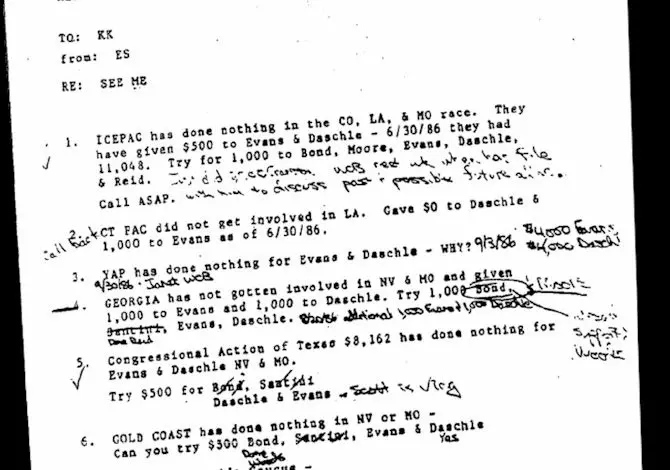WASHINGTON, D.C.-The move to levy sanctions against Iran in the House and Senate is hastened by this week’s AIPAC conference held March 26-27 in Washington D.C.
A hawkish stance against Iran is expected to be a key policy point for pro-Israel groups.
Iran’s test of ballistic missiles in late January fired up US officials, Trump aides, and a bipartisan host Congresspeople.
Issuing a February statement right after the tests that called them a “clear violation of U.N. Security Council Resolution 2231,” AIPAC called upon the US to further incapacitate the Islamic Republic’s economy, sanction supporting sectors and affiliates, push back against their other foreign policy initiatives, and reassert support for Israel and other US allies in the region, such as Gulf region countries.
Counterintuitive to AIPAC’s strong fiscal hold on politicians and policy is its premise as a public relations group, not a political action committee.
While AIPAC does not directly donate to candidates, the organization maintains a consistent and unbroken agenda that involves regular meetings with Congressmen and women to persuade and press foreign policy and defense objectives.
AIPAC, established in 1951, is one of many of an apparatus that maintains its longstanding campaign to dominate public discourse on Israel.
“The key to AIPAC’s success is steering money to key members of Congress for their campaigns,” said New York based civil rights attorney Abdeen Amjara.
One of AIPAC’s up and running campaigns involve efforts to lobby Congressmen and women and Senators to authorize sanctions against Iran and scrapping the Iran nuclear deal after efforts of doing so were unsuccessful in 2015.
The Iran Sanctions Act passed again in late 2016 after overwhelming approval in the House with a 419-1 vote and a unanimous vote in the Senate.
The law was enacted Dec. 15, 2016.
AIPAC’s most recent press release, issued March 8, “applauds the U.S. House of Representatives for significantly bolstering its support of U.S.-Israel missile defense cooperation in the FY 2017 defense appropriations bill.”
A large portion of the bill is allocated to furthering research and development funding for missile and rocket programs that also act as in concert to U.S.-Israel joint defense effort.
The bill’s main representatives, whom the press release gave accolades to, include Chairman Rodney Frelinghuysen (R-NJ) and Ranking Member Nita Lowey (D-NY) and House Defense Appropriations Subcommittee Chairwoman Kay Granger (R-TX) and Ranking Member Peter Visclosky (D-IN), all of whom ensured additional amendments and provisions involving specific weapons procurements were included in the legislation.
Upon further examination, defense contractors, including Lockheed Martin, were top donors for four out of five of these representatives. Ranking Member Nita Lowey, who is the exception in having defense industries included in her top ranks, has listed “Pro-Israel” as her fifth largest group of beneficiaries in the 2015-2016 campaign cycles, according to OpenSecrets.
While AIPAC is not in itself a political action committee and does not directly donate to candidates, it has effectively harnessed control of congressional opinion.
Its funding base is largely comprised of generous contributors to pro-Israel PACS. Like AIPAC, they systematically surveille the opinion of various candidates to determine how best, as PACs, to direct their funds. From there, these PACs can refuse to support candidates whose policies are not directly in line with Israels.
“WAIPAC examines records of elected officials on the issues which define and strengthen the US-Israel relationship and raises funds through donations to elect and retain deserving candidates and members of Congress,” WAIPAC, pro-Israel PACs mission statement reads.
A coalition of Zionists, many of whom bankroll pro-Israel PACs, coalesce via AIPAC to disseminate a pro-Israel narrative.
When the humanitarian case for the supporting Israel could no longer answer the country post occupation, the narrative shifted to a national security-based one. A.F.K. Organski galvanized Israel’s ability to act as a counterweight to Russia in the Cold War 1980s. Since then, support to Israel has been taken as a security measure against the perceived threat of not only Russia, but also nations such as Palestinian territories, Iraq, Syria, and Iran.
The same story that has bolstered the alt-right is highly intersectional with a pro-Israeli voice. Breitbart, a publication most frequently cited on Trump’s website until mid 2016, originated during founder Andrew Breitbart’s 2007 stay in Israel, and along with Larry Solov, developed as a counterweight against the “anti- Israel bias of the mainstream media and J-Street.”
Both the lobbying group and the publication, while directly having little to do with one another both uphold massive military and political leverage in favor of israel by virtue of repeating a story.
With current chief strategist Steve Bannon, a former editor-in-chief of Breitbart, the blurred lines between public relations and foreign policy, are much less unprecedented in hindsight. We can thank AIPAC, a PR organization that pledges to not having contributed to any campaign yet has profoundly shaped American foreign policy, to thank for setting the trend.






Leave a Reply